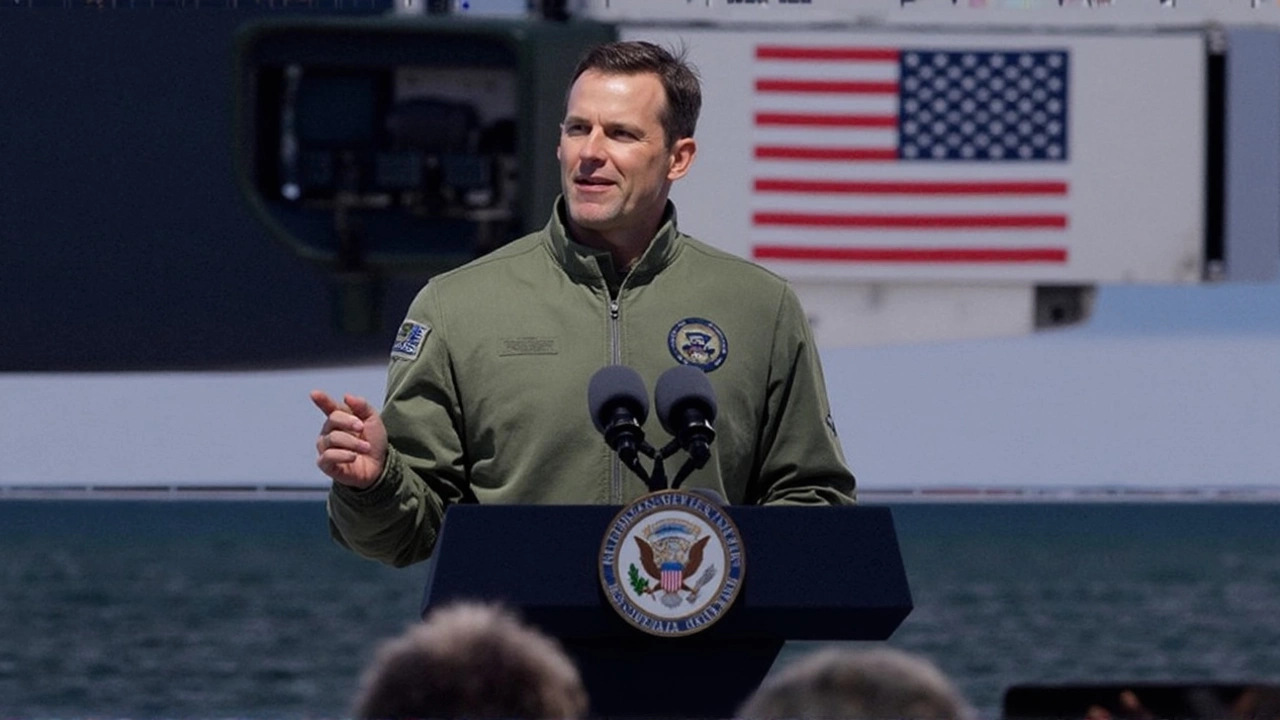Tensions Flare Amid Diplomatic Overture
When U.S. Vice President JD Vance and his wife Usha landed in Greenland on March 28, 2025, what was meant to be a diplomatic visit quickly became a diplomatic conundrum. What could have been a friendly engagement turned into a strained encounter as the original itinerary faced strong resistance both from locals in Greenland and Danish officials.
The couple's plan initially included visiting cultural hotspots like Nuuk and Sisimiut, aimed at strengthening cultural ties. Yet, the resistance to what was perceived as a lack of consultation with Danish and Greenlandic authorities was palpable. In response, the schedule was trimmed to include only a day spent at the U.S. Space Force base in Pituffik. Instead of mingling with the public, they met with American military personnel and received briefings focused on Arctic security—a topic of growing global interest.

U.S. Ambitions in the Face of Opposition
The timing of the visit wasn't without significance. Since President Donald Trump took office, he's made little secret of his interest in increasing U.S. influence over Greenland, a territory governed by Denmark. Trump's assertive stance was reiterated during the visit, citing Greenland's strategic importance for monitoring international security threats, especially those posed by China and Russia in the Arctic.
While the U.S. stresses the need for strategic control, the approach has been met with skepticism in Denmark. Vice President Vance clarified that the military option wasn't on the table, but criticized Denmark for what he considered insufficient investment in Greenland's security and development initiatives.
The visit was also notable for the swiftly organized coalition within Greenland's parliament. The coalition, encompassing four political parties, aims to resist Trump's overtures towards U.S. territorial expansion. The visit's toned-down nature was a relief to local media, who portrayed the original engagement plans as overambitious without proper diplomatic channels.
The scaled-back visit included key U.S. figures like National Security Adviser Mike Waltz, Energy Secretary Chris Wright, and Senator Mike Lee from Utah. As the first U.S. vice president to set foot on Greenland, Vance made a point to acknowledge the efforts and dedication of troops stationed in the Arctic. His gratitude didn't entirely mask the undertones of unilateral movements by the Trump administration that have left Denmark wary. It underscores a pivot in U.S. policy towards a more bold stance in the Arctic, diverging from traditional NATO allies like Denmark.
This visit marks a pivotal moment in the dynamic of U.S.-Denmark relations, set against the backdrop of heightened military and diplomatic assertiveness. While it may have avoided brewing up larger controversy this time, it signals a shift in how the U.S. intends to engage with Arctic regions moving forward.
